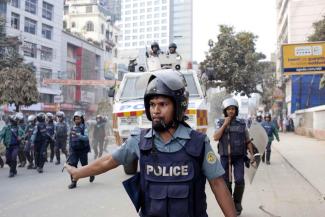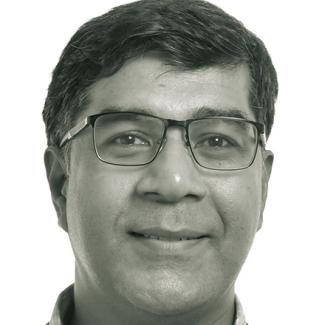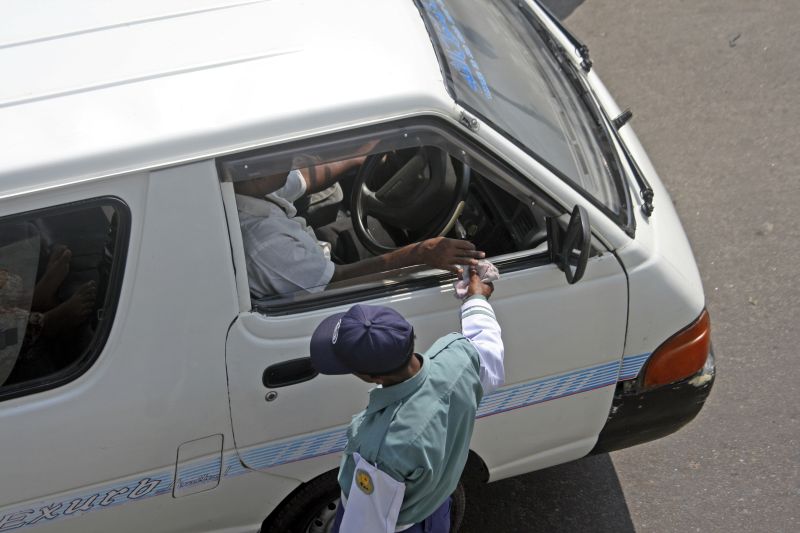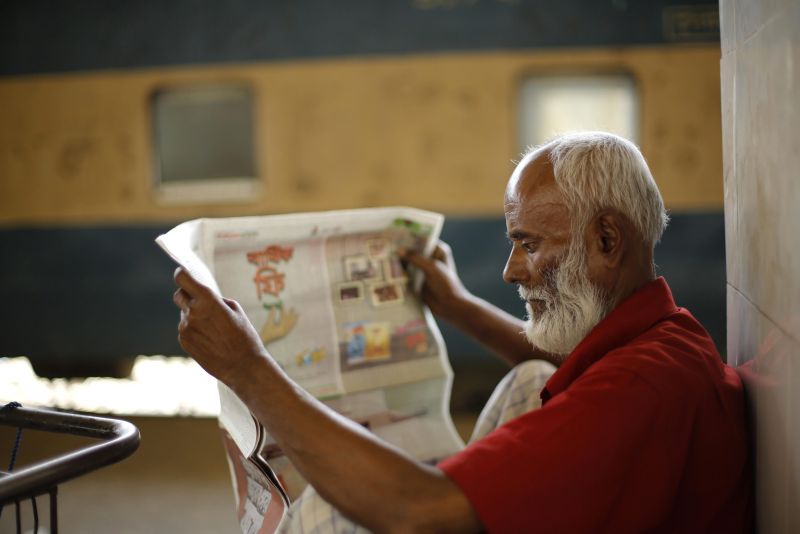Comment
Clashing ideologies

Technically, today’s government is an elected government. However, the major opposition parties boycotted the parliamentary elections in January 2014. In 152 of 300 constituencies, the candidates of the Awami League, the main government party, faced no opponent.
With its huge majority in parliament, the Awami League government now seems to feel it can rely excessively on law-enforcing agencies to tackle opposition protests, which indeed sometimes turn extremely violent. The opposition parties have a long history of organising bloody protests and general strikes. Nonetheless, it is inappropriate for the government to call upon the law-enforcers to deploy “maximum force” to fight those who hurl petrol-bombs on the streets.
Violent, even terrorist extremism by opposition parties is being countered by an excessive use of force by state agencies. Mizanur Rahman, the chairman of the National Human Rights Commission, recently stated that 70 % of the allegations of human rights violations they receive are against the law-enforcement agencies.
An unprecedented high number of extra-judicial killings and forced-disappearances have occurred in the first months of this year. Senior opposition leaders are in detention, facing multiple criminal charges. Some say that legal prosecution has become a tool of repression and even persecution.
In recently held city elections in Dhaka and Chittagong, fake votes were cast, polling centres were captured, and candidates running against the government-backed candidates were harassed. There were no campaigns in which people would have expressed their views and debated policy issues freely. The vote felt like the make-belief elections staged by the country’s past authoritarian governments.
Regression is most evident in regard to the freedom of expression. Fewer and fewer people dare to speak their minds. Political leaders have begun to accuse the media of misusing their freedom and painting a too negative picture of the country. Senior ministers held meetings with editors to make them understand what not to publish. A few veteran citizens have been attacked physically and verbally for what they believe and say.
In the past, the Awami League has stressed the linguistic identity of Bangladesh as the country of Bengali speakers and a secular state, whereas the opposition parties tended to put more emphasis on the Muslim character of the nation. Today, however, diverging ideas and ideologies are increasingly seen as unbridgeable. Pluralism, tolerance for diversity and respect for others’ convictions are in decline. Religious fanaticism is becoming ever more dangerous in a country that used to be known for its tolerant stance. Several bloggers have been brutally killed for what is called “atheist” writing.
History now seems to be a contentious issue too. The Awami League government established the long-awaited International Crimes Tribunal (ICT), which is dealing with the violent past of the country’s liberation war of 1971 that witnessed a horrible genocide. The background is that the Awami League spearheaded the independence movement, whereas some of the political forces which now belong to the opposition were aligned to Pakistan.
The ICT recently convicted David Bergman, a Dhaka-based British journalist for contempt of court because of his questioning the official number of people killed by the West Pakistani military and its collaborators. He did so in a blog he was keeping as a researcher following ICT cases.
According to international standards, soberly assessing facts submitted before court is the human right of a researcher and journalist. Accordingly, 23 eminent persons expressed their concern at Bergman’s conviction. The ICT summoned them, and all but one apologised unconditionally to the ICT. Zafrullah Chowdhury, a veteran doctor who returned from Britain to help build the new nation in 1971 (see interview in D+C/E+Z 2012/03, p. 126), chose to defend himself however, and the ICT convicted him for contempt of court as well. In the meantime, the Supreme Court’s Appellate Division has overturned that conviction, after Chowdhury too apologised unconditionally.
From a civil liberties and human rights perspective, limits on the freedom of speech remain worrysome. Bangladesh needs reasoned debate, not rabid fanaticism. Bangladesh needs the rule of law, not the clash of diverging authoritarian attitudes.
Ridwanul Hoque is an associate law professor at Dhaka University. This comment may not be reproduced without the explicit permission of the author who reserves his copyright.
ridwandulaw@gmail.com










